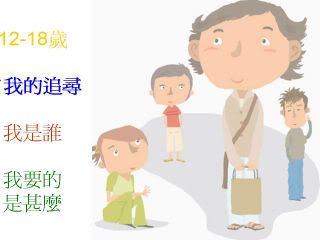成长
人都会长大,但不一定会成长。成功是我的自信,挫折是我的良师,万事都互相效力,叫爱神的人得益处。首先恭喜我的小女儿所写的书『Taiwan Tiff』出版了。
我家的二丫头马上要过十九岁的生日了,她生于美国,六岁去台湾,十六岁又回美国读书。
这是她在她15,6岁时动笔写的故事书。
书写好后,因正赶上高中毕业,接着又是选大学,入学。。。直到今年的暑假才抽出时间做最后的编辑,寻找出版商出版。
香蕉,外黄内白。
在海外人们常拿它来比喻生长的西方的远东的孩子们。
我家的两个ABC(American Born Chinese=在美国出生的华人)当然也是类属香蕉孩子的行列。
有别于一般的ABC,我的孩子们在上小学时随着我们一起从美国搬去了台湾。
鉴于许多的原因,我们在孩子们的教育取向上,选择了台湾的国际学校。
这样就使得她们虽然地处于台湾,却又生活在美国文化的环境中。
在台湾生活的十年里,两个女儿基本上是被LABELED 为“美国人”。
然而,当孩子们每年暑假回美国读Summer school , 特别是在最后二年半回美国读高中时却又被学校和同学们LABELED 为Chinese kids......
在这样不同文化的冲击下,我们女儿们也和其他的高中生一样,步入了青少年。
青少年是一个人从孩童转化为成年人的特殊阶段。在这个阶段里,孩子们开始了TA们人生的思考。 
TA们原本被从父母那里承接的价值观,世界观。。。这时就都被扔了出来,他们不在是父母的延伸“品”他们在寻找,寻找并建立;经过自己的验证属于自己的思想,看法,价值观,世界观。
一般的孩子在步入青少年时,最困扰的就是Identity的问题。
而香蕉孩子们因自己特殊的背景,使得他们在Identity的问题上凸显出更多的问题和麻烦。
『Taiwan Tiff』就是一本透过许许多多发生在台湾和美国的有趣的小故事,来讲述在东西方不同文化下,香蕉孩子如何寻找属于自己的Identity。
有别于“大人们”写的书,『Taiwan Tiff』是一个青少年,站在孩子的立场,角度来看并记录在她的身边所发生的事,并以青少年的笔调将它们呈现在读者的眼前。
下面是我摘录的二段书中的内容。
摘一
香蕉孩子在Identity上的烦恼。
摘二
是作者在美国读高中时,上世界历史和社会学(Social Studies)课时发生的故事。
如果你有青少年的孩子,建议你看完这段,经管它的篇幅有一点点的长。
透过这段故事,我们多少可以了解一些孩子们在课堂上,在学校里所遇到的让他们感到不舒服的事情,和这些事对孩子的冲击和影响。
老实说,看完这段,我才明白,东方孩子在美国的环境中所面对的Issue 一点都不比我们成年人少。
在成年人的世界里,人们在种族文化等议题上,还懂得婉转与修饰。起码让我们在面子上过的去。
可孩子就没我们那么幸运了。他们面对的是直接的甚至是带有攻击性的。。。
看到女儿如何面对“现实”,从“尴尬,羞辱,愤怒”到重新调整,宽恕,平静。。。 这一连串的心路历程,让我为之而动容。
摘一:P.43
I was constantly being rudely awakened by my dual cultural identity. In the United States, I had to endure the endless Asian jokes. In Asia, I felt equally unaccepted and could not shake my Americanization as hard as I tried.
摘二:P67-69
This feeling of alienation reached its peak as I sat in World History once, jotting down notes on an overview of world religions my classmates presented. Most of the presentations were pleasantly entertaining. Buddhism was not.
“Buddhists meditate all the time,” a girl said jollily, “like seriously, all the time. They’ll see any statue and they’ll start meditating.”
I cocked an eyebrow. Not funny. What was truly appalling, however, was that the class found her snide comment humorous. To say the least, if she had said the same thing to a group of intense Buddhists, she may be locked up. Okay, perhaps not that dramatic. But Buddhist people would be seriously unhappy with her. I marveled at the large goofy smiles imprinted on the faces of those around me. These people were fools! I was no Buddhist, but as someone who had lived in a country whose major religion is Buddhism, I fostered religious tolerance and cultural sensitivity. I put down my pen and started to wonder what my class would say if I told them Catholics prayed at the site of every crucifix.
After several weeks, I sat in on a large group seminar regarding China’s communist history. Our teacher introduced the seminar saying, “Kids, this is the dumbest history I’ve ever heard of, and trust me, I know a lot of history.” She then proceeded to insult the Chinese and the Cultural Revolution, elaborating on how Chinese people were stupid for burning weak metal in attempt to make steel. She touched up on the Tiananmen Square protests of 1989, saying, “The youth in China wanted democracy, but Mao Zedong was so paranoid that he sent in troops. So police killed a ton of the kids. Moving on…”
What? Was that all she cared to say about the Tiananmen massacre, the revolutionary event when students died for their determination to change the government? Was all she could say two lousy nonchalant sentences? I would probably be in a casket if I ever said, “Martin Luther King wanted equal rights for African Americans and whites but people got mad. Someone killed him and he died. Moving on…”
She proceeded to show a heart-wrenching video of the devastation Chinese people suffered as a result of Mao’s rule. Speakers in the video reminisced over how their students betrayed and paralyzed them, and how their own family members jailed them for alleged lack of loyalty to Chairman Mao. As I sat in silence and deep sorrow, watching the past of my mother’s nation and the story of my own relatives, the entire auditorium roared with laughter. Perhaps the people on the film looked funny; perhaps their eyes were stereotypically slitty. Perhaps they stuttered as they spoke and could not enunciate English words perfectly. The entire auditorium was shaken in a jiffy, and for the first time, I fully grasped two concepts.
One was the American arrogance and ignorance my dad always had told me about that I used to always deny. He said, Americans can be nice, but that does not make them humble. Previously, I deemed him a racist, but now I noticed he was merely trying to tell me the truth and prepare me for the salty tears that filled my eyes that day in the auditorium. I felt so betrayed. For years, I naively believed America was an understanding, grand nation that accepted all. Yet, now, America, I witnessed, not only misunderstood, but readily laughed in the face of half of my Asian identity derived from my mother. Although I grew up in Taiwan, I had spent weeks and even months in China from family vacations. China was a part of my experiences, a part of my blood. Tears rolled down my cheeks, and I wanted to scream into a microphone on stage, “What is so incredibly funny about this video? What hilarity do you see in the Tiananmen Square massacre? Are you all simply inhuman, or too damn ignorant? I am ashamed to be American. I am ashamed to live on the soil of a country that sarcastically and improperly educates world history, I am ashamed to wear the clothes you sell in your stores, I am ashamed to speak your language, and I am ashamed to be friends with some of you who I know are laughing your heads off. How do you find the most heartbreaking moments of Chinese history so hilarious? Must you laugh? What if I showed you a clip of the 9/11 attack and laughed? How would that make you feel? How would that twist and break and shatter your heart?”
The second concept I started to grasp was of inhabiting a roomful of people yet feeling completely alone.
Now this is not to say that my experiences in Nebraska were a constant reflection of bigotry and racial ignorance. Fortunately, years later, I was relieved to find that this attitude was not shared amongst the majority of educators at my school. I had some other great teachers at Westside. At the same time though, this kind of cultural idiocy was not an isolated case.
Tiffany在书中岁月的小档案:
1990年生于美国麻州,并读完幼稚园
1996年搬到台北并开始上小学
2001年上中学
曾担任台北美国学校的 National Junior Honor Society Vice President
2006元月转来美国一间拥有2000多学生的高中继续读书
2006年春当选 Student Forum Vice President
一年后当选为 National Honor Society President
在美国的二年半里她为学校建立了 High School Paper Recycling Program
又于2008年毕业前促成她们学校和天津市实验中学的姐妹校。双方的学生和老师已开始了互换和交流。
PS:如果你想购买此书,请打入这个LINK:
http://www.lulu.com/content/paperback-book/taiwan-tiff/7226289
八月底后你也可以直接在AMAZON上购买。







谢谢姐姐,
知道自己是谁,的确是人生的一个重要议题,我也很高兴她能“走”出来。
问好!
收藏!
谢谢飘MM,
腐败中还惦记着俺家二丫头,感动ING。。。
你啥时回比利时?看你在中国玩的有点乐不思蜀。。。
我忽然想起,你离家这么久,那你家的芦花有人照顾吗?
这书要收藏~~~~~~~~~~~~~
3姐啊,我先要订购5本
我们这可都是原始股董们啊
得意一下。
谢谢闲人,
她是我生命中的阳光!
从小她就很努力,一直在挑战自己,懂事,乐观,随和。
最难的的是此书基本上是在她十一年级写完的,而十一年级又恰好是高中生最忙,压力最大的时候。。。
谢谢你的回帖,问好!
谢谢您,
香蕉孩子的成长掺杂着许多的压抑和挫折感。有时可能比我们成年人遇到的还多。
我真的很欣慰孩子的成熟和乐观。
再次的谢谢您,我会转告她您对她的称赞。
祝,
周末愉快!
谢谢分享,我和您一样,听到了孩子们发出这样的声音,为她骄傲自豪。
謝謝MM,
我要說明的是:這既不是一本香蕉孩子在IDENTITY方面的“理論”書也不“生活指南”。
它是孩子用自己的語言說自己的故事。
在書里有好笑,溫馨的故事,也有青少年偷雞摸狗,調皮搗蛋的經歷。
有歡笑,有流淚,更有讓孩子們去思考的Meaningful的問題。
當然還有一些有關媽媽,爸爸的故事。。。。。。
孩子可能會喜歡看,但父母??我就不好說了。